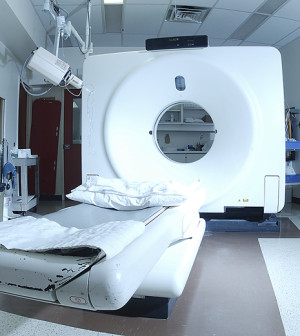- Double Mastectomy May Offer No Survival Benefit to Women With Breast Cancer
- Toxic Lead Found in Cinnamon Product, FDA Says
- Certain Abbott Blood Sugar Monitors May Give Incorrect Readings
- Athletes Can Expect High Ozone, Pollen Counts for Paris Olympics
- Fake Oxycontin Pills Widespread and Potentially Deadly: Report
- Shingles Vaccine Could Lower Dementia Risk
- Your Odds for Accidental Gun Death Rise Greatly in Certain States
- Kids From Poorer Families Less Likely to Survive Cancer
- Tough Workouts Won’t Trigger Cardiac Arrest in Folks With Long QT Syndrome
- At-Home Colon Cancer Test Can Save Lives
Sleep Apnea May Worsen Fatigue in MS Patients


Sleep apnea is common in people with multiple sclerosis and may contribute to their fatigue, a new study shows.
Fatigue is one of the most frequent and debilitating symptoms experienced by MS patients.
The study included 195 people with MS who completed a sleep questionnaire and were assessed for daytime sleepiness, insomnia, fatigue severity and sleep apnea.
One-fifth of the patients had been diagnosed with sleep apnea and more than half were found to have an elevated risk for the condition. The researchers also found that sleep apnea risk was a significant predictor of fatigue severity.
According to the American Academy of Sleep Medicine (AASM), sleep apnea involves decreased or periodic stoppage of airflow during sleep. As muscles relax, soft tissue at the back of the throat may collapse and block the upper airway. Most people with the condition snore loudly.
MS is a chronic, frequently disabling disease that attacks the central nervous system, according to the National Multiple Sclerosis Society. Symptoms range widely, from mild signs such as numbness in the limbs to severe symptoms including paralysis or loss of vision.
The new findings suggest that sleep apnea may be a common but under-recognized contributor to fatigue in MS patients, and doctors should not hesitate to check these patients for sleep problems, study author Dr. Tiffany Braley, an assistant professor of neurology at the University of Michigan Multiple Sclerosis and Sleep Disorders Centers, said in an AASM news release.
“Obstructive sleep apnea is a chronic illness that can have a destructive impact on your health and quality of life,” and MS patients at high risk for sleep apnea should undergo a comprehensive sleep evaluation, academy president Dr. M. Safwan Badr said in the news release.
The study appears in the Feb. 15 issue of the Journal of Clinical Sleep Medicine, an AASM publication.
About 400,000 people in the United States have MS, according to the National Multiple Sclerosis Society. Up to 7 percent of men and 5 percent of women have sleep apnea, according to the AASM.
More information
The American Academy of Family Physicians has more about multiple sclerosis.
Source: HealthDay
Copyright © 2024 HealthDay. All rights reserved.










